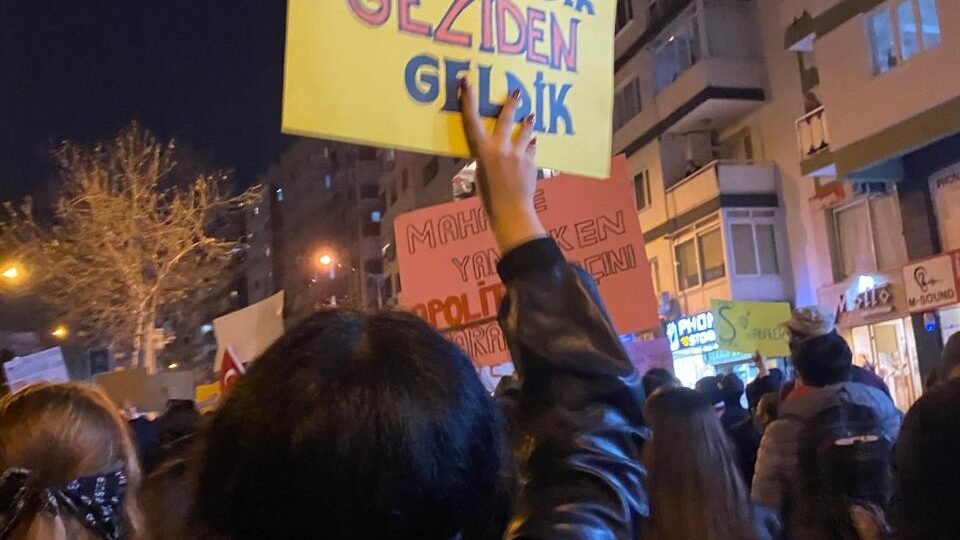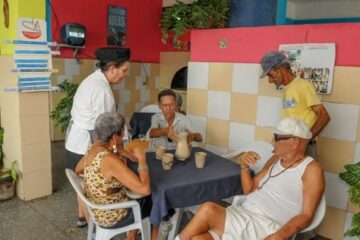In the last municipal election, in 2024 in Turkey, the Republican People’s Party (CHP) won in big municipalities like Istanbul, Ankara, Izmir, and 32 other cities. They are the opposition of the Justice and Development Party (AKP), the party of Recep Tayyip Erdogan, which has been in power at the federal level since 2002. In the Kurdistan region, the AKP also suffered a major defeat with the Green Left Party (DEM) winning 10 municipalities.
Although opposition parties have achieved great success, they face the appointment of federal government trustees. This is when a mayor is removed from office and replaced temporarily by a state-appointed official (usually a governor or district governor). In Turkey, this practice is particularly common after elected mayors are dismissed on the grounds of “links to terrorism” – that is a strategy used so that a government appointee takes over the running of a municipality instead of a popularly elected mayor. The federal government paved the way for the appointment of trustees to municipalities after the coup attempt of July 15, 2016. Between 2016 and 2019, trustees were appointed in more than 95 municipalities, specially in those won by the Peoples’ Democratic Party, the political party of the Kurdish movement. After the 2024 elections, as of April, 9, 2025, trustees were appointed to a total of 6 provincial and 7 district municipalities, and two CHP mayors were arrested and dismissed.
The next presidential election will happen in 2028, and there is a rumor that Recep Tayyip Erdoğan (AKP), which has been in power for over 10 years, wants to be a candidate again, which is not possible according to the constitution. In the face of attacks on fundamental rights, the growing economic crisis and the AKP’s totalitarian regime, the opposition CHP has started campaigning for early elections.
Recent attacks
Ekrem İmamoğlu, the mayor of Istanbul, has achieved great success in two consecutive local elections and has become an important figure in Turkish politics. After this success, public opinion has emerged that İmamoğlu should be the opposition’s presidential candidate. Following this popularity, one after another investigations started to be opened against İmamoğlu for what was said on some of his speeches, and transactions carried out in the municipality. One investigation is to cancel his diploma because he had changed universities during his undergraduate studies. In Turkey, a university diploma is a requirement for presidential candidates. In response to the intimidation of İmamoğlu through investigations, CHP announced that they will hold a primary election to determine their presidential candidate.
On March 18 2025, İmamoglu’s university diploma was canceled by his alma mater Istanbul University. On March 19, 2025, he was taken into custody in the early morning from his home on terrorism and corruption charges. Two district mayors and several municipality employees were also detained as part of the same investigation.
One investigation, based on secret witness accounts, alleges that İmamoğlu, together with his political allies, engaged in corruption in the municipality. In the other investigation, there are allegations that he collaborated with the Kurdistan Workers’ Party (PKK) and gave money to the organization to win the municipal elections. The detention of Ekrem Imamoğlu, which seem to be based on no concrete evidence, is consider by the public as the government’s way of trying to overpower Erdoğan’s strongest rival. Following the detentions, large protests were organized, especially with calls from university students. It was significant that the first major protest to break the police blockade started at Istanbul University, where Ekrem İmamoğlu was a graduate. As of March 19, protests began in Istanbul and many other cities. On March 23, forty-eight people, including İmamoğlu, were arrested on corruption charges, while three people were arrested on terrorism charges. İmamoğlu was dismissed from duty.
These are the largest protests in the country since the Gezi Resistance in 2013.
These protests are not only against İmamoğlu’s arrest but also against the AKP’s use of the judiciary as an instrument of political repression, authoritarianism and attacks on democratic rights since the day it came to power.
It is important to emphasize that these protests have some key differences. The Gezi Resistance, which took place around 12 years ago, was a peaceful, large-scale protest. It was also deeply anti-war, anti-militarist, and left-wing. I was in high school back then, and it was my first protest. The mood was unified in opposition to government policies.
Because of the government’s policies in the last 12 years, the changes in the education system and the strengthening of the right wing, we see a different group of young people in the protests this time. They are more militaristic and more nationalist. Many of the students, influenced by changes in the education system under the AKP, express more aggressive and sometimes violent rhetoric. They have been using ’ve used sexist slurs, racist language, and hostile slogans, creating a more divisive atmosphere. Although these groups cannot make themselves heard much in protests where social movements and leftist parties are well represented, they try to dominate protests where there are more unorganized people.
This shift is particularly worrying for marginalized groups, including feminist, queer and Kurdish individuals. Many of my feminist, queer and Kurdish friends have expressed feeling unsafe at protests dominated by these groups because the dominant youth culture in these movements seems exclusionary and sometimes hostile. While protests are important, they can become difficult spaces for these groups to take part in. For this reason, feminists denounce sexist swear words, racist slogans and chants used in resistance spaces, saying “We are not objects in swearing, we are subjects in resistance”.
The government responded with police violence and arrests. Thousands of people were detained and nearly 300 university students were arrested. Almost 300 of the arrested youth and university students were progressive, feminist and left-wing, some of them organized in social movements and leftist parties. Detainees’ lawyers reported that women were subjected to sexual violence, strip searches, insults and degrading treatment. To stop the protests, the government declared a nine-day off for a religious holiday that would normally last three days. They hoped this would end the protests on the streets and in universities, but as soon as the holiday was over, university students mobilized again.
At the same time, there have been government announcements to start a new peace process with the PKK (Kurdistan Workers’ Party) in the fall of 2024. Following these calls, PKK leader Abdullah Öcalan1Abdullah Öcalan is a Kurdish political figure who founded the PKK (Kurdistan Workers’ Party) in 1978. After many years of armed conflict, he played a role in the peace process in the 2000s and has been imprisoned in İmralı Prison in Turkey since 1999. Since 2011, he has not been able to meet regularly with his lawyers, and from March 25, 2021 to February 2025, he was held in conditions of absolute isolation., who had been in absolute isolation since March 25, 2021, was allowed to meet with parliamentarians, and in February 2025, he made a statement calling on the PKK to lay down arms. Although this call is an important development after years of criminalization of the Kurdish movement and peace activists, there is criticism of the lack of transparency in the process.
After this peace process, many argued that the Kurdish people and the Kurdish movement did not want to be part of the protests for Ekrem İmamoğlu. Despite this, the Kurdish movement made statements condemning the arrests and participated in the protests, though not with their entire mobilization. It is possible to say that the Kurdish movement, whose elected mayors and parliamentarians have been arrested and replaced by trustees since 2016, has not received the necessary support from the CHP and some social movements. For this reason, we can say that they are hesitant to provide a large mobilization for the current protests. Another reason is that they do not want the resumed peace talks to be damaged.
Popular mobilizations
During these protests, the CHP, in response to public demand, proposed another way of mobilizing: an economic boycott. Many of the owners of large companies in Turkey are in the government or are known to be close to the government. The public response to this call for a boycott has been strong. On April 2, a full economic boycott was called for, with a call to stop all consumption. Following this, social movements have declared every Wednesday a day of full economic boycott. This is a powerful movement, and the government is now concerned as these companies are in a difficult situation as they have lost consumer support.
Moreover, local markets and producers are gaining support and barter markets are becoming more common. These markets offer an alternative to the big corporations that support the government. This could create a significant shift in people’s relationship with the economy in the coming weeks.
Feminists from Turkey continue to participate in these actions and try to create safe spaces of resistance. The feminist movement, which is the strongest opposition to the government, continues to be criminalized day by day. The government has declared 2025 as the “Year of the Family”. A few months ago, we learned that they were working on a draft bill to criminalize women and queers. In Turkey, where marriage equality is already not accepted, the draft law includes articles such as imprisonment for symbolic ceremonies such as engagement and wedding ceremonies organized by queer couples.
For years, no one could protest against the government as effectively as the feminist movement, despite the criminalization of feminist organizations.
Now, there is a significant opportunity to strengthen the movement, particularly among young women who are eager for change. Many young women are turning to feminist movements as the only source of trust and hope for change. There are numerous events, forums, and open mics happening at universities, which could be a pivotal moment for organizing young feminists. We will continue to strengthen the struggle for an equal, free, just and non-violent life.




